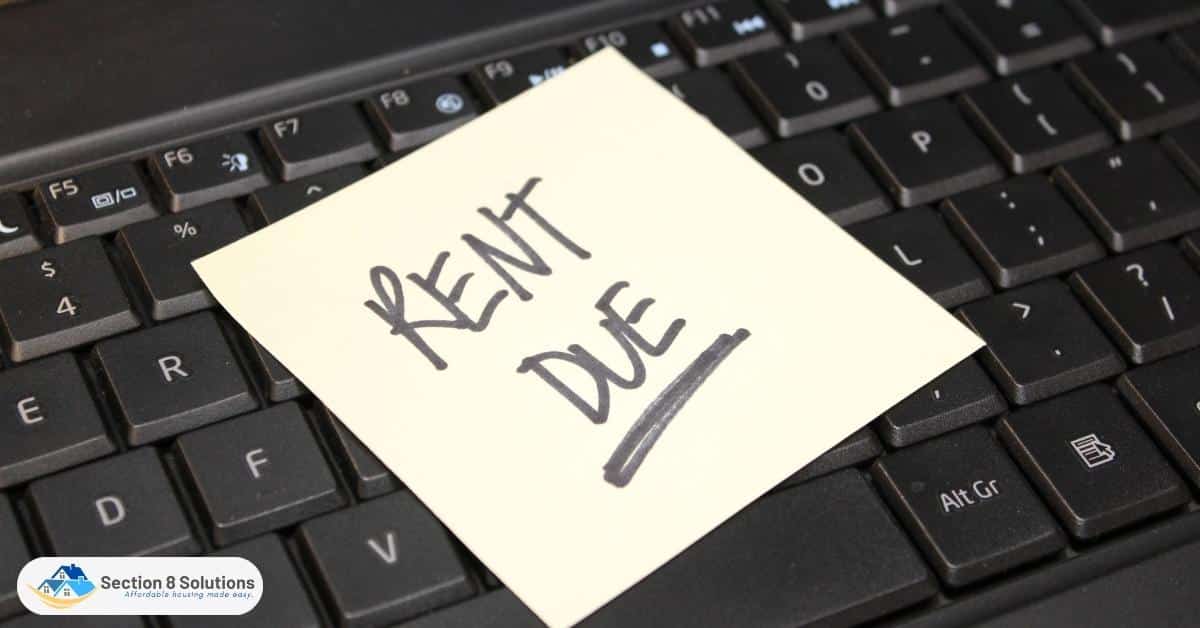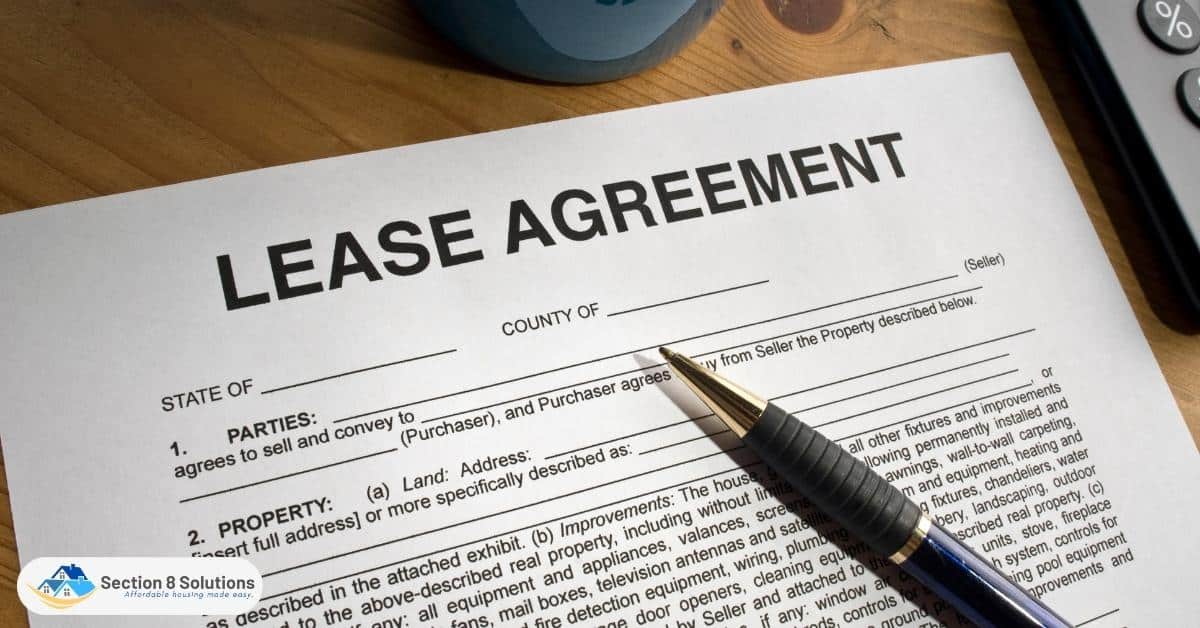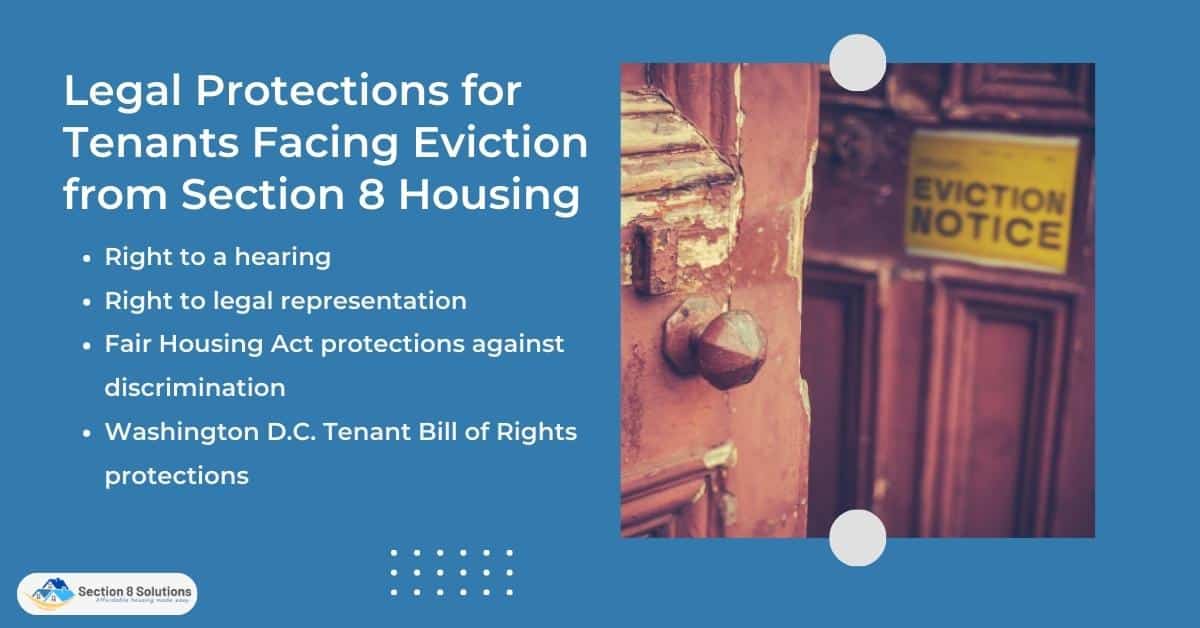Eviction from Section 8 Housing can be a daunting and overwhelming experience for tenants in Washington D.C. It is important for tenants to understand the reasons for eviction, the eviction process, and the legal protections available to them. Nonpayment of rent, violation of lease agreement, criminal activity, destruction of property, and failure to report changes in household income or composition are all reasons for eviction.
In this blog, we will explore the reasons for eviction from Section 8 Housing in Washington D.C., the eviction process, and the legal protections available to tenants.

Section 8 Housing and Its Importance
Section 8 housing is an important source of affordable housing for many residents in Washington, D.C. It provides rental assistance to those who meet certain income and family size requirements. This helps families with low incomes to live in affordable, decent-quality housing in desirable areas of the city.
The program, funded by the federal government, also requires landlords to maintain their properties and ensures that tenants receive basic rights from their landlords. Therefore Section 8 plays a crucial role in helping people access quality spaces despite limited financial wherewithal.

Reasons for Eviction from Section 8 Housing in Washington D.C.
Nonpayment of rent
Nonpayment of rent is a key factor in eviction from Section 8 Housing in Washington D.C. In general, if the tenant fails to pay their rent after the landlord attempts to remedy the situation with no success, they may be served with an eviction notice. To prevent this unfortunate circumstance, tenants are expected to discharge their financial obligations in a timely and consistent fashion.
Failure to do so could result in the termination of the lease and subsequent eviction. It is important for tenants residing in Section 8 Housing in Washington D.C. to be aware of their rights and responsibilities as outlined by the lease agreement they have signed.

Violation of lease agreement
In Washington D.C., a tenant may be evicted from Section 8 housing for violations of their lease agreement. These include such activities as failure to pay rent on time, engaging in illegal activity on the premises, or violating occupancy standards.
Tenants should carefully review their lease and contact their local public housing agency if they have any questions or concerns. It is important to stay informed and aware of potential violation scenarios to ensure that they remain in full compliance with the agreement and are able to maintain residence in the housing unit.

Criminal activity
Washington D.C.’s Section 8 housing program is committed to providing safe, affordable housing for its residents. In order to maintain this safety and protect the rights of other tenants, criminal activity can be grounds for eviction.
This includes activities like drug dealing, prostitution, or violent behavior. Offenders may receive a warning initially, but if continued criminal conduct occurs, the offender will be evicted from their Section 8 housing unit with no option for readmission.
Therefore, it is important for tenants to abide by all local laws in order to continue living in these units and ensure that everyone has a clean and peaceful living space.

Destruction of property
The intentional destruction of property resulting in eviction from Section 8 housing in Washington D.C. is a serious violation of the Housing Choice Voucher Program and carries stringent consequences. Intentionally destroyed appliances, damage to walls or floors, or excessive messes can incur charges for wasted agency funds as well as lead to immediate termination of the voucher contract with no notice and eviction from premises.
Landlords are required to provide residents with written warnings prior to any action; failure to comply could result in prosecution by HUD officials.
Failure to report changes in household income or composition
In Washington D.C., it is important for tenants receiving Section 8 housing benefits to promptly report any changes in household income or composition; failure to do so is grounds for eviction. Additionally, it is important to remember that these guidelines are in place to ensure the fairness of the program and that all tenants are eligible for received benefits under the same standards.
Additionally, failing to inform about changes can result in potential fraud allegations against tenants which can impede their ability to seek out any sort of government housing assistance in the future. Thus, it makes sense to follow program regulations and stay up-to-date with any changes while enrolled in the Section 8 housing benefit program.

Eviction Process in Washington D.C.
Notice of eviction
Tenants in Washington, D.C. receiving Section 8 housing must be aware of certain eviction processes. A termination notice is typically given by the landlord informing the tenant of their intent to evict; these notices must meet legally-mandated requirements and be provided before taking further steps.
In some cases, discretion can be applied by a judge, waiving the need for an eviction altogether. Knowing the basic legal rights and processes around eviction can help tenants protect themselves during this trying time.
Court proceedings
Eviction proceedings in Washington D.C., for Section 8 tenants, involve the landlord filing a complaint with the local housing agency. Upon receiving the complaint, the tenant is issued a hearing date and location. The tenant has the option to appear in court or submit a written response prior to the court date.
During this time, evidence is presented by either side on both their positions. The presiding judge then decides if an eviction order should be granted. This process can take weeks or even months to complete, depending on the complexity of the case.

Potential outcomes of court proceedings
The court proceedings for the eviction process of Section 8 Housing in Washington D.C. may vary depending on the situation. However, the general implications will remain the same. Additionally, if the tenant is proven to be unlawfully evicted, restitution and damages may be awarded by the court.
On the other hand, if it’s determined that the tenant had not fulfilled their obligations under their lease agreement, they may be held accountable and ordered to pay past due rent. In either case, a decision would be rendered that determines how any outstanding issues between tenant and landlord must be addressed accordingly.

Consequences of eviction, including loss of housing and difficulty finding new housing
The eviction process of Section 8 housing in Washington D.C., can have major implications. This includes loss of housing, an inability to find new housing, and even legal ramifications such as fines and evictions from other government-affiliated institutions.
As a result of being delinquent on rent payments, individuals face increased stress resulting from the disruption to their lives and potential damage to their reputation. This is why it’s important for renters to understand the eviction process and their rights as tenants.
Doing so will allow them to take appropriate measures to comply with rental regulations and protect themselves.

Legal Protections for Tenants Facing Eviction from Section 8 Housing
Facing eviction can be a daunting experience that can create numerous difficulties for both tenants and landlords. As such, it is important to understand the legal protections available to those tenants occupying Section 8 housing.

Right to a hearing
People facing eviction from Section 8 housing now have the right to a hearing on their behalf. With this new legal protection, they can state their situation before an impartial arbitrator or administrative law judge.
Tenants are encouraged to seek assistance from a lawyer or legal aid provider prior to the hearing to ensure they have put forward all arguments and evidence. A favorable outcome at the hearing may result in a stay of eviction, reinstatement, or other possible remedies. Additionally, this increased access to justice is encouraging for everyone involved in the process.
Right to legal representation
Tenants facing eviction from Section 8 housing are protected by their right to receive legal representation. Landlords must provide those tenants with notice and the opportunity to find an attorney and gather information before they appear in court.
Once appearing in court, an individual has the option to represent themselves or be represented by counsel, who can advise them on their rights and assist them during proceedings. Also, allowing for legal representation strengthens tenant protections, giving those that are subject to eviction the tools needed to advocate for themselves.
Fair Housing Act protections against discrimination
Established by the Fair Housing Act of 1968, legal protections exist to prevent discrimination in Section 8 housing. Tenants have rights when facing eviction, such as providing an opportunity to dispute the facts giving rise to the landlord’s proposed eviction. Additionally, landlords are prohibited from evicting tenants for discriminatory reasons or retaliatory acts.
Lastly, eviction decisions must be based solely on a tenant’s compliance with federal and local laws, and the rental agreement. Protections afforded by the Fair Housing Act give tenants the peace of mind that their living options cannot be unreasonably and unfairly limited.
Washington D.C. Tenant Bill of Rights protections
Washington D.C. is serious about providing legal protections for those facing eviction from Section 8 housing. Its Tenant Bill of Rights states that a tenant can demand the written testimony of their landlord, who must provide evidence in support of their eviction case.
Furthermore, tenants are protected by the right to proper notice, non-retaliation, and dispute resolution. Timely access to justice is ensured with a 30-day limit on most evictions. In addition, renters have the right to legal representation and assistance at no cost should they face an unlawful eviction lawsuit.
Also, these rights are intended to help safeguard the well-being and security of all tenants in D.C.
Resources for Tenants Facing Eviction from Section 8 Housing in Washington D.C.
Tenants facing eviction from Section 8 housing in Washington D.C. may feel overwhelmed and uncertain where to turn for help. All tenants should be familiar with their rights as a tenant to ensure that they are treated fairly during this process.
Here are some resources available to tenants facing eviction from Section 8 Housing in Washington D.C.:
- Legal Aid Society of the District of Columbia
Provides free legal assistance to low-income individuals facing eviction or other housing-related legal issues.
- Link: https://www.legalaiddc.org/
- Contact Number: (202) 628-1161
- D.C. Office of Tenant Advocate
Offers information, resources, and legal services to tenants facing eviction, including representation in court.
- Link: https://ota.dc.gov/
- Contact Number: (202) 719-6560
- Housing Counseling Services
Provides counseling, education, and resources to tenants facing eviction, including financial and legal assistance.
- Link: https://housingetc.org/
- Contact Number: 202-667-7706
- Legal Counsel for the Elderly
Offers free legal assistance to low-income seniors facing eviction or other housing-related legal issues.
- Link: https://www.aarp.org/legal-counsel-for-the-elderly/
- Contact Number: 1-888-687-2277
- Bread for the City
Provides a range of services to low-income individuals and families, including legal assistance, food, and clothing.
- Link: https://breadforthecity.org/
- Contact Number: 202-265-2400
- Washington Legal Clinic for the Homeless
Offers legal assistance and advocacy for homeless individuals and families, including those facing eviction from Section 8 Housing.
- Link: https://www.legalclinic.org/
- Contact Number: 202-328-5500
It is important to note that this is not an exhaustive list of resources and there may be other organizations or programs available in Washington D.C.

Conclusion
Eviction from Section 8 housing in Washington D.C. is a serious consequence that can have far-reaching implications for tenants and landlords alike. It is important to be aware of the various factors leading to eviction, such as nonpayment of rent, violations of lease agreements, criminal activity, and more.
Knowing the legal protections afforded to tenants can help those facing eviction better advocate for themselves and protect their rights.












